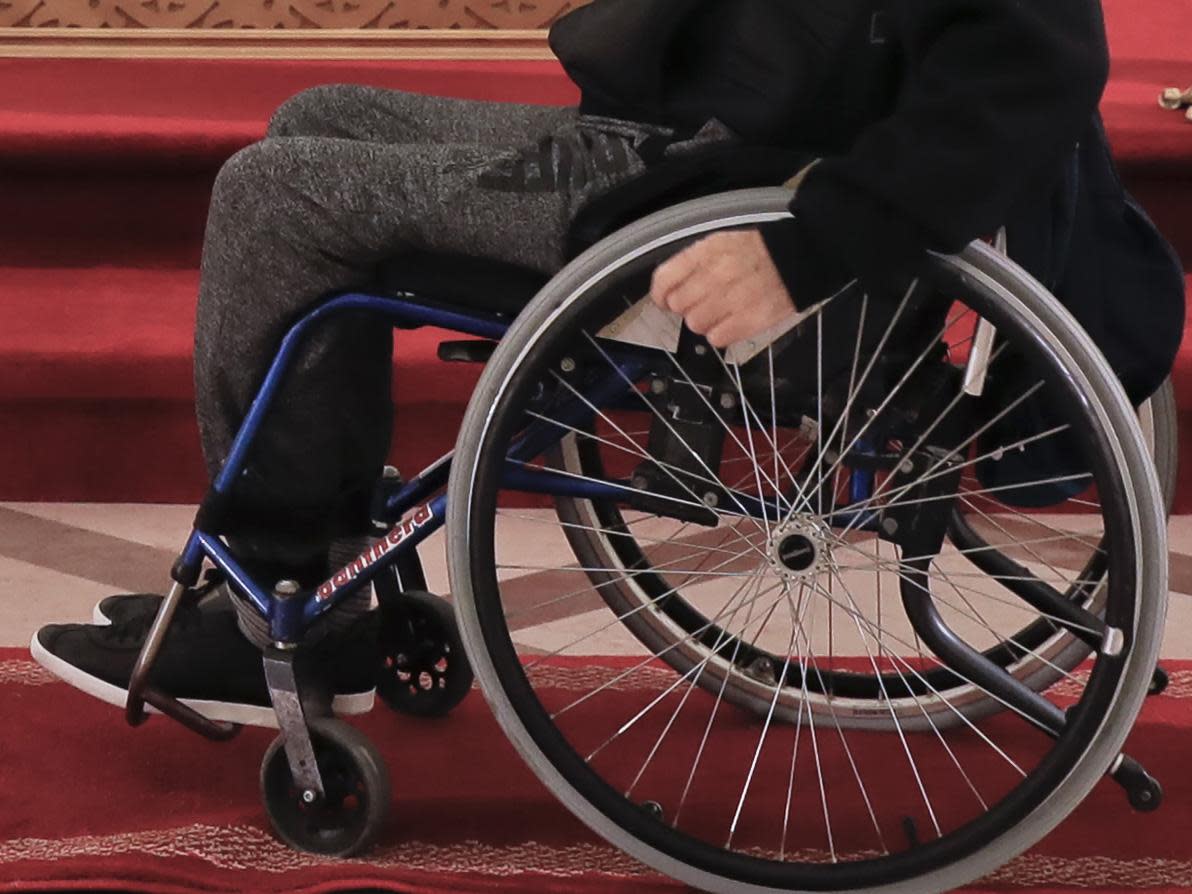Government response to damning inquiry into disability benefit system 'falls short', say MPs

The government’s response to a damning inquiry into the disability benefit system “falls short”, MPs have said, after it refused to accept a number of recommendations designed to restore trust in the assessment process.
A report by the Work and Pensions Committee published in February found failings in the process for assessing personal independence payment (PIP) and employment support allowance (ESA) claims had contributed to a “pervasive lack of trust” in the system with “untenable human costs” to claimants, as well as financial costs to the public purse.
It revealed that all three private firms contracted to assess people for disability benefits were failing to meet the government’s own quality standards, and concluded that the process was in need of “urgent change”.
In its response, the government said the Department for Work and Pensions (DWP) would improve the recording of assessments and the design of application forms to make it easier for claimants – two recommendations that were made by the committee.
But ministers rejected both the suggestion that claimants should receive their assessment reports without having to ask, and the recommendation that the DWP should conduct an audit of arrangements for home visits, including reasons for refusal.
Responding to the government’s response to the inquiry, Frank Field, chair of the committee, said the decision to record PIP assessments as standard was a “tremendous step forward” and would “go a long way” to restoring trust. But the Labour MP added that the response “fell short” in certain areas.
“A commitment to improving the gruelling application forms is also very welcome, and clearly the government has listened to the thousands of claimants who contributed to our work,” he said.
“But the response falls short in several areas. For example, we think claimants should always receive their assessment reports without having to ask, and we are concerned that the government lacks the levers to get value for money out of its private contractors.
“This response marks the start of another stage in our work on PIP and ESA – we will use House of Commons debates to push the government to go further in support of disabled people.”
Margaret Greenwood, the shadow work and pensions secretary, accused the government of “failing sick and disabled people”, saying the response “fell far short of the urgent action needed to end the unnecessary stress and anxiety being inflicted through the assessment processes”.
She continued: “Under private contractors these processes are getting worse, not better, often damaging the health and wellbeing of the very people who need support.
“The government should scrap the current assessment regime, put an end to the privatisation and work to deliver a social security system in which people can have confidence.”
Philip Connolly, policy manager at Disability Rights UK, said he welcomed the government’s commitment to recording PIP assessments, but added that confidence in the assessment process for disability benefits was “scant and threadbare”.
He continued: “We were very sorry to see the government refuse the recommendation that all claimants should be sent a copy of their assessment report as a matter of course. This would be a huge step forward in helping disabled people understand what is being said about them, and why, in relation to benefit claims.
“Overall, the current assessment providers offer poor value for money for the taxpayer and we urge the government to consider very seriously the option of returning the assessment process in house, given the contracts are up for review.
“But we have to remember that PIP and ESA are not well designed benefits, and fail to meet the needs of many disabled people. Changes to the assessment process for the better are welcome, but there are wider issues which need to be addressed.”
Genevieve Edwards, director of external affairs at the MS Society, meanwhile said: “We’re disappointed the government hasn’t fully taken on board the practical steps that could have radically improved the way disability benefits are assessed.
“Some actions, like recording assessments, are a start but a lot more needs to be done before we see a welfare system that makes sense.
“We’re particularly concerned the government won’t make improvements around how healthcare professionals can consistently provide evidence. Without this, assessors don’t have enough knowledge about MS and this is causing many people to be denied what they are rightly entitled to.”
It comes after figures published at the end of last year revealed that the government’s new benefit system was wrongly denying disabled people financial support at a higher rate than ever.
Decisions by the DWP not to award PIP were being overturned at 68 per cent of appeal hearings, the data showed, with 14,188 cases found in favour of the claimant between July and September this year.
Successful appeals brought against the DWP over ESA had also soared, with the proportion of cases found in favour of the claimant at 67 per cent in the last quarter, compared with 62 per cent in the same period last year and 58 per cent the year before.
A DWP spokesperson said: “As the Committee highlights, assessments work well for the vast majority of people. But one person’s poor experience is one too many, and we’re committed to continuously improving the process for people so that they get the support they need.
“We’ll continue to take forward our actions to improve assessments, with an emphasis on promoting transparency and ensuring people get the right decision, first time round.

 Yahoo News
Yahoo News 
